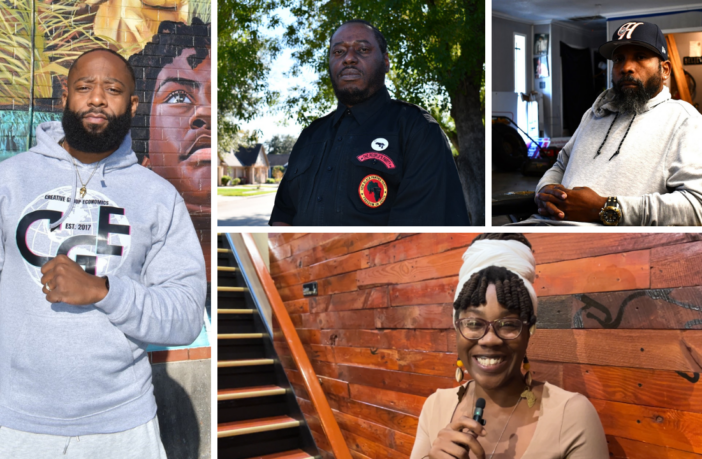Houston-area activists like longtime Sunnyside/South Park resident Travis McGee (pictured) challenge stereotypes, showcasing diverse backgrounds and approaches to community engagement. Credit: Aswad Walker.
Society, in general, often has a skewed view of activists. But Houston-area activists, and activists in general, offer way more than meets the eye.
Misconceptions the general public has about activists, misrepresentations of activists in movies and TV shows, and the presence of “opportunists” posing as activists, have given sincere community change agents a bad rap with many.
Still, those women and men dedicated to improving Black life continue to make a difference.
MISCONCEPTIONS
The media often portrays activists as hustlers, who are scamming the system by playing the “race card” for cash settlements. On the flip side, other movies and TV dramas portray the “sincere” activists as economically struggling, dirt-poor individuals who view money as a vice.
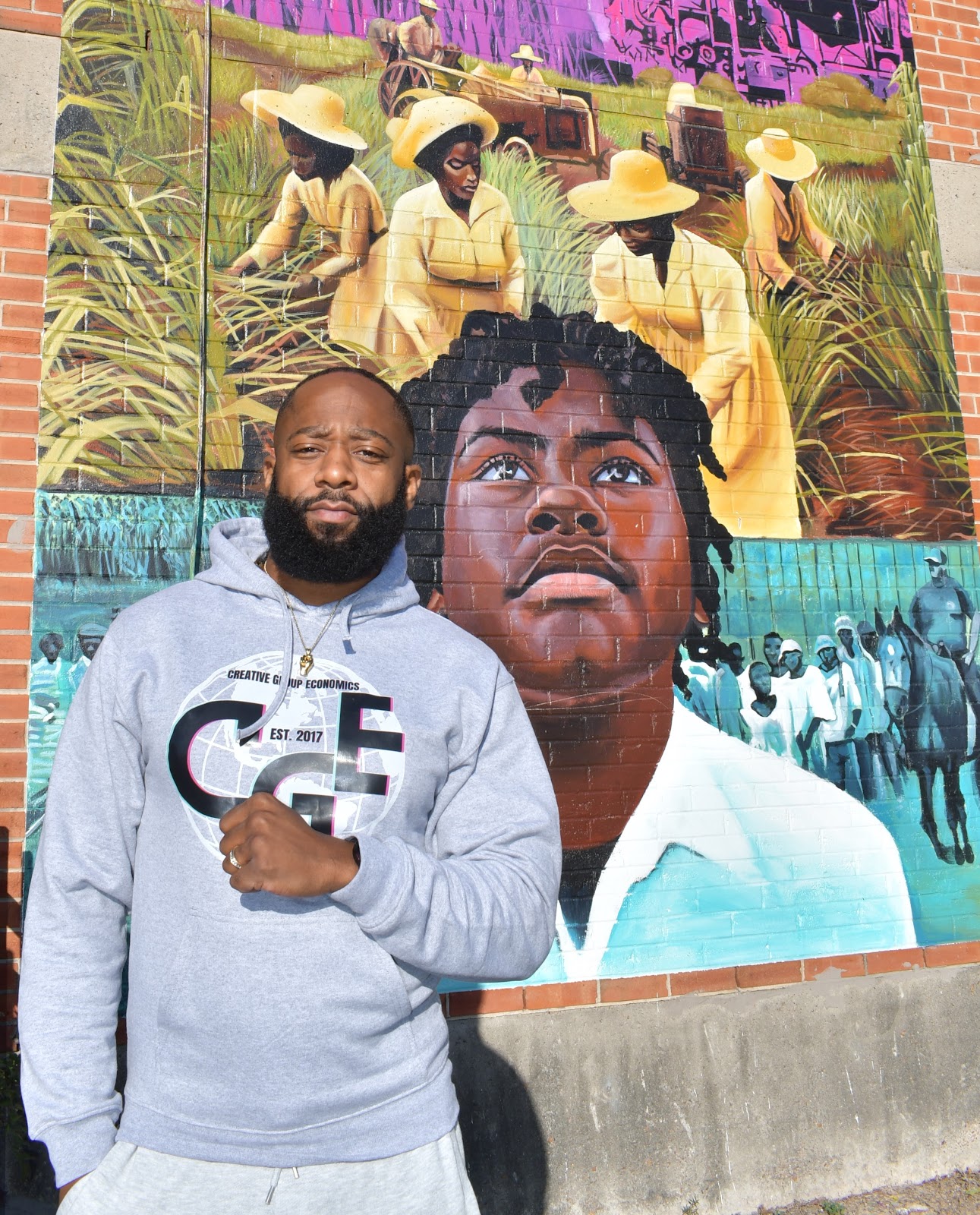 Lloyd Ford. Credit: Aswad Walker.
Lloyd Ford. Credit: Aswad Walker.
Lloyd Ford uses his activism not only to change systems that obstruct Black people’s access to all the rights and resources we deserve but also to change the narrative that activists need to be poor to be “real.”
“When people think activists, they think broke. No. I’m a business person. That’s why our group is called Creative Group Economics, said Ford, who is a PVAMU alum. “We’re all about the economics and we’re all about starting with the money and using that money to solve our issues.
“We don’t believe that a nonprofit or organization can solve our [community]issues by taking money from the government. We are not saying don’t take any grant. But we say use it as the gravy, never the main course.”
Another misconception is activists’ 9-to-5s are their activism. Though true on a philosophical level, as many are “on the clock” 24/7 for their causes, several work regular “day” jobs.
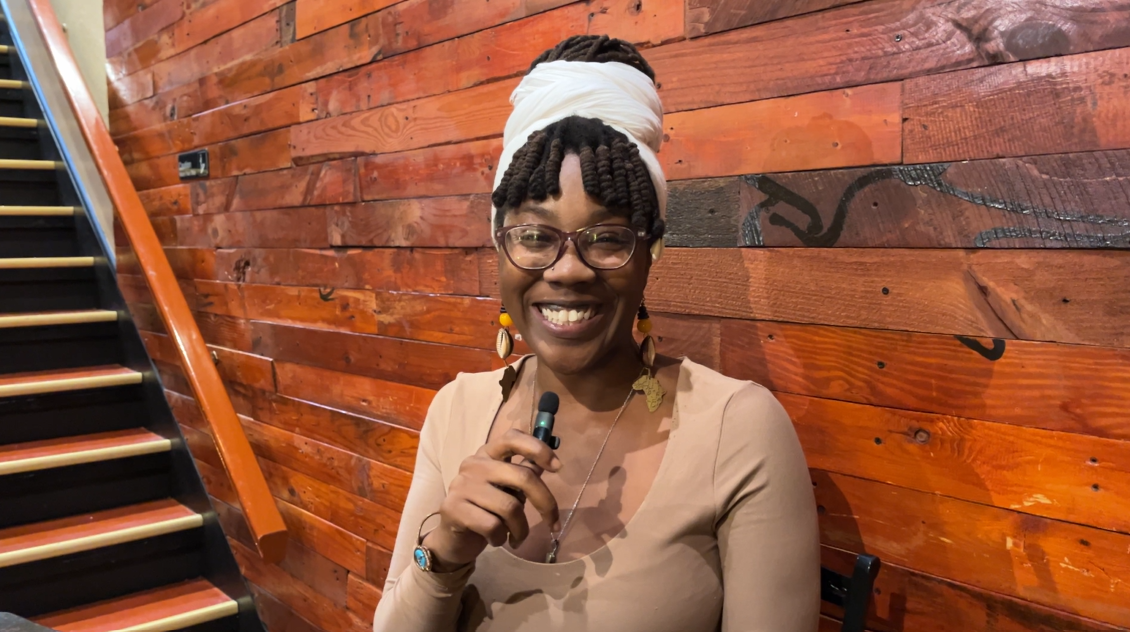 Aisha Shahid.
Aisha Shahid.
Aisha Shahid is a 7th-grade math teacher, yoga instructor and entrepreneur. In addition to her “Off-the-clock” activism, which involves feeding the homeless and working to get them housed, she injects her activist spirit into her workplace.
“Even in the classroom, I’m thinking about community and how I can help these kids excel and inspire them,” shared Shahid, who is currently pushing her school to create a student garden. “Activism is an everyday thing.”
Shahid founded A.N.P.U. (All Neighborhoods Powerfully United), a group that engages in community clean-ups and feeding the homeless.
Yahcanon Ben Yah, national chairman of the People’s New Black Panther Party, left his 9-to-5 and became an Uber driver to free up time for his community work.
“I’m a normal person. I have bills to pay, just like everybody else. So, I get up, go to work in order to pay the bills, and once I get home, I try to take a little bit of time just to myself. Then, I continue to organize and make calls and put in place whatever is absolutely necessary,” said Ben Yah.
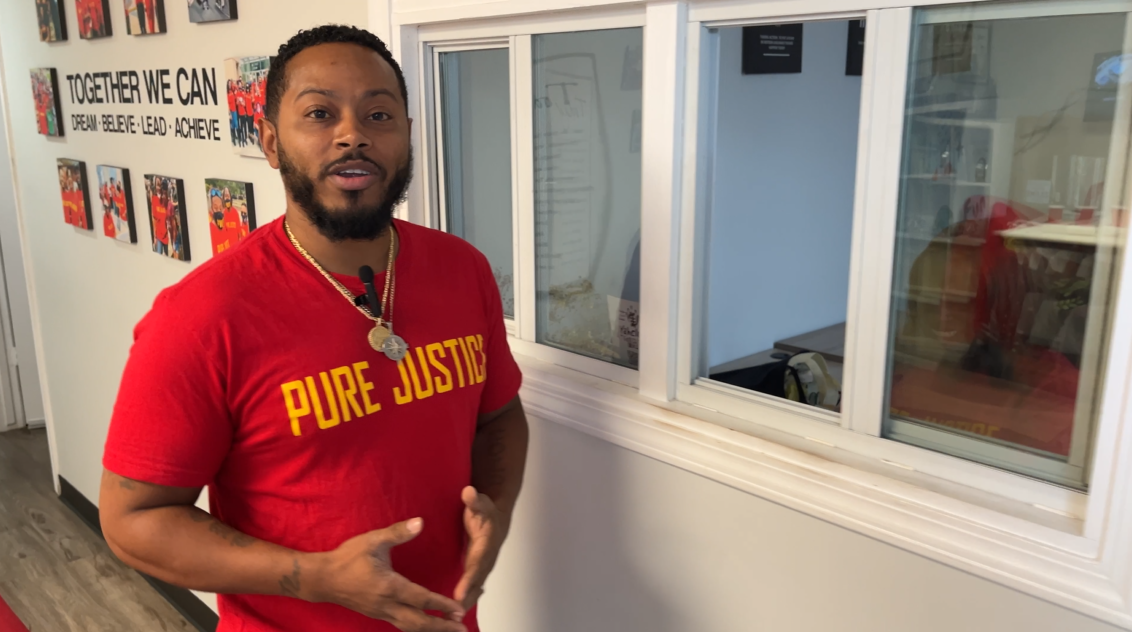 Roshawn Evans.
Roshawn Evans.
Some activists like Roshawn Evans, organizing director and co-founder of Pure Justice, have formed 501(c)3s and (c)4s and non-profits to make their life’s activism calling their full-time job.
Thus, Pure Justice is Evans’ 9-to-5.
“This is all I got; advocacy, organizing, bringing people together. This is me. This is what you’re gonna get,” said Evans. “I feel like I am blessed to be in a position to get paid to do what I’m gonna do anyway. I get paid to be who I am. I’m not coming to a job that I hate, or that is putting me in a space of doing things I don’t wanna do.”
AREAS OF FOCUS
Many reduce activists to the one or two interviewed regularly by local news whenever a “Black” issue arises. But the Houston area has hundreds of activists, coming from various backgrounds and focusing on a multiplicity of issues.
Not all activists focus solely on criminal justice issues or deploy marches and protests as their sole tactics to “fight the powers that be.” Where an activist focuses their efforts depends on the activist.
“My activism always starts local. You rarely hear me talk about the presidency. I’m always talking about starting local with our local stuff, our local issues, people on the ground, our local officials coming from city council, state reps, mayors, attorneys, county, and city. So, my everyday thing always deals with having power within our own municipalities, within our own city,” said Ford.
“We’re trying to solve the issue of taking back our own communities economically, in a whole different way. And we feel like through economics, we’ll be able to solve a lot of different issues.”
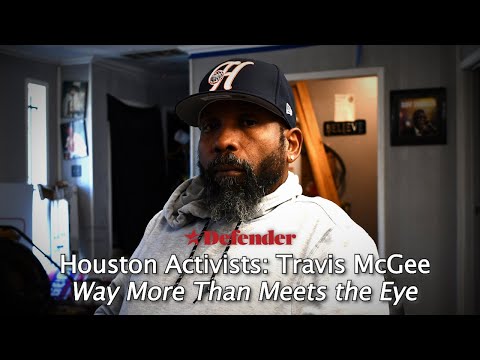
“Sometimes people say you pick and choose your battles, but sometimes your battles pick and choose you,” said lifelong Sunnyside/South Park resident Travis McGee. “So, I’m pretty much involved in everything, criminal justice, infrastructure, education, you name it. Anything that affects us, I’ve been a part of it.
McGee also brings his activist heart to his role as civic club president for over 20 years with Sunnyside Gardens Bayou Estates. He’s also the newly elected president of South Park Super Neighborhood 72.
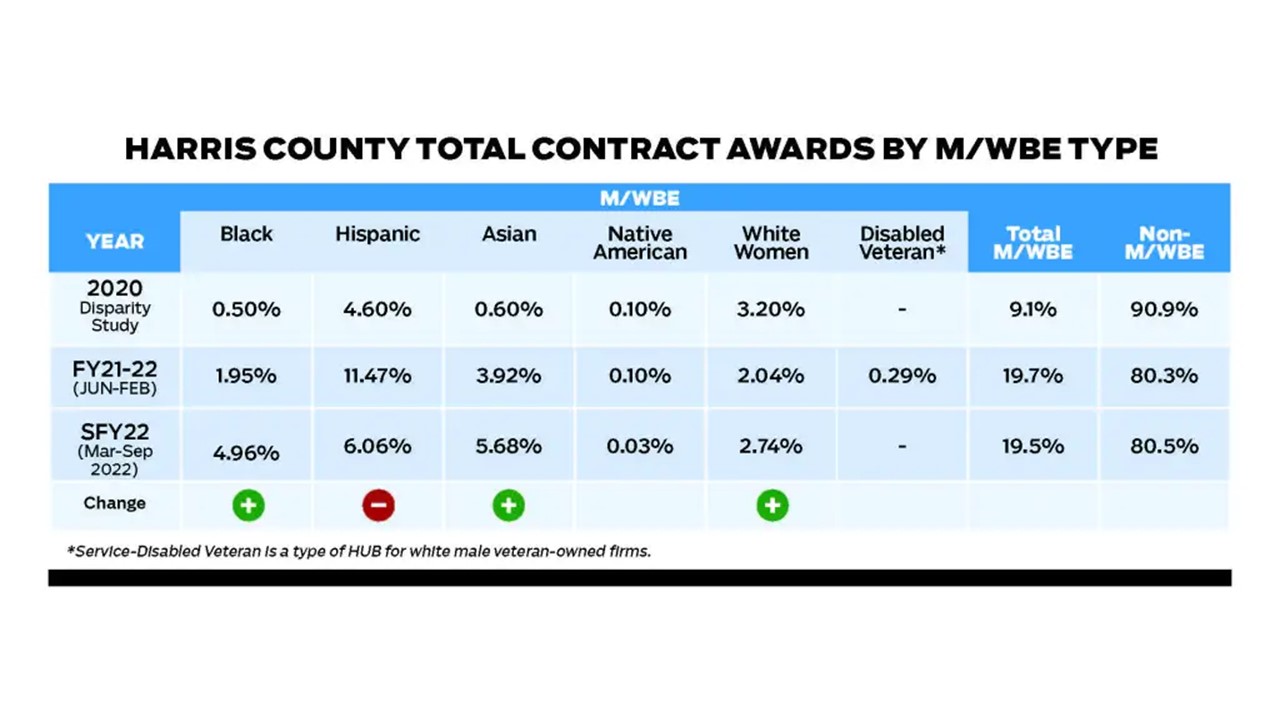
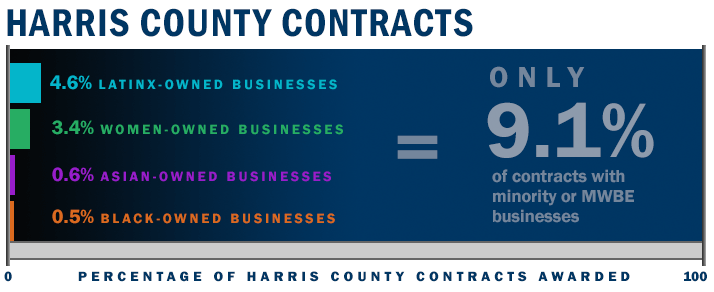
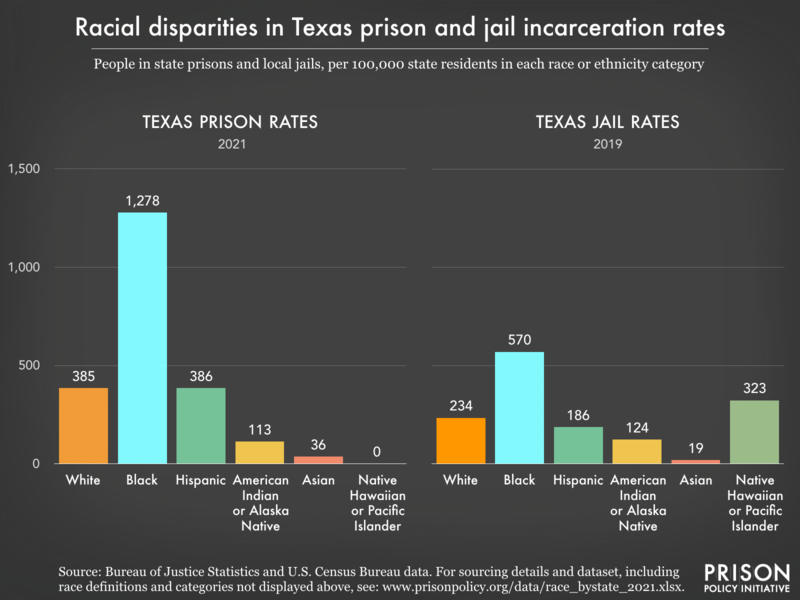
ORIGIN STORIES
Some activists were seemingly born and raised to serve community. Others were brought into activism and advocacy by a personal life incident or one experienced by someone else that inspired them to act.
For Ben Yah, it was seeing the injustice of the Trayvon Martin tragedy played out on the national news. For Cynthia Pharms, an elderly citizen being mauled to death by a neighbor’s pit bulls, would not allow Pharms to sit idly by. For Shahid, the death of George Floyd in 2020 got her off the sidelines and into the community-building game.
Joy Davis was inspired to become an activist due to various family life experiences. She was also so impressed by the impact Pure Justice has made that she eventually became the organization’s field manager.
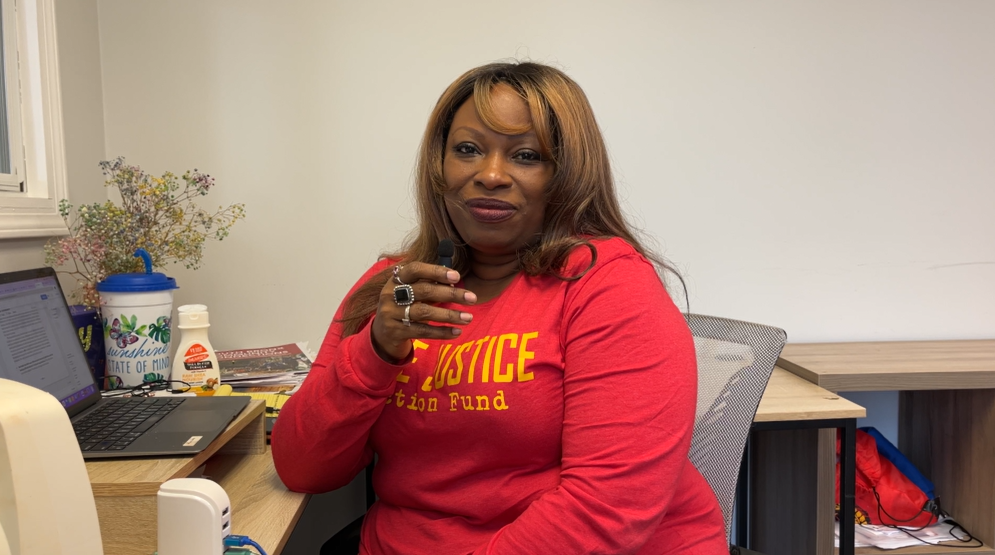 Joy Davis.
Joy Davis.
“My family has been impacted by criminal justice issues. I’ve had relatives that were attacked by the Houston Police Department. This organization works to dismantle white supremacy and also help to eliminate the horrific crimes against the community by the police,” said Davis.
Evans recounts how he was sucked into the criminal legal system behind a false accusation with inadequate counsel and no support system, which explains his passion for “pure” justice.
DAY/WEEK IN THE LIFE
One common thread among activists is the constant requests they receive from people and communities needing help. However, their responses play out in numerous ways.
Ford began his activist walk while working a corporate job. That meant he couldn’t give the time and energy he desired to address community issues until he was off the clock. Now, as an entrepreneur, Ford says he can give more of himself to the causes he fights for.
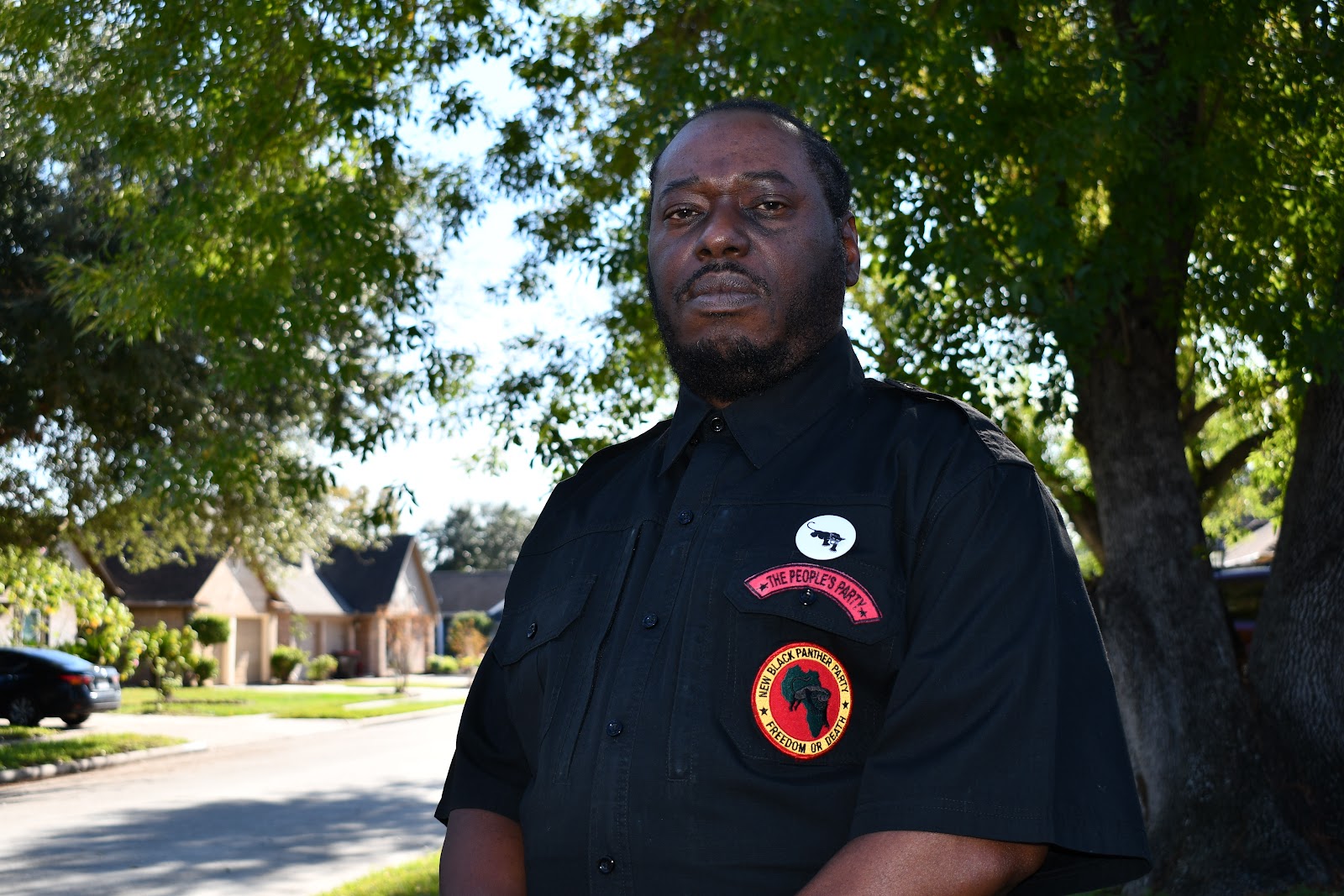 Yahcanon Ben Yah. Credit: Aswad Walker.
Yahcanon Ben Yah. Credit: Aswad Walker.
Ben Yah is often on the phone with lawyers and detectives so he can give much-needed updates to family members of victims or of the incarcerated. On multiple occasions, Ben Yah’s work helped solve cases that had been cold for months and even years.
“I’ve been a business owner for over 20 years. So, if I bite the hand that feeds me, I’m gonna be the one hollering ‘Ouch.’ You pretty much have to be independent in activism. Sometimes you lose money out there fighting for people,” stated McGee.
CHALLENGES
Another commonality Houston activists expressed centers around one of the main challenges they face in their work. It can be summarized by two words—Black people.
Shahid, Ben Yah, and Ford said the lack of vision of the very people they seek to serve can be disheartening at times.
“I have a problem with selfish advocacy. I also have issue with people only wanting to get involved with the things that impact them,” said Evans.
McGee put it this way: “The hard part is the people not actually appreciating and knowing who is actually out there fighting for them.”
